- About Us
- Columns
- Letters
- Cartoons
- The Udder Limits
- Archives
- Ezy Reading Archive
- 2024 Cud Archives
- 2023 Cud Archives
- 2022 Cud Archives
- 2021 Cud Archives
- 2020 Cud Archives
- 2015-2019
- 2010-2014
- 2004-2009
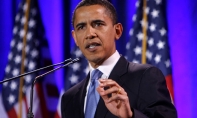 |
Ezy Reading: Why America Needs A President Barack Obama |
While at the time of publication it has become increasingly apparent that, pending any catastrophic revelations, 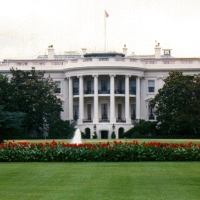 Barack Obama will be the Democratic Party’s nominee for President of the United States, there is still considerable debate left — including a considerable Presidential campaign proper — to assess the relative strengths and weakness of Obama versus the Republican nominee John McCain and, for the time being, Hillary Clinton. The substantive policy differences between each candidate on both the domestic and international fronts are critical, certainly bear extensive consideration, but have also been discussed and can be found in far greater detail elsewhere. Instead, while it runs the risk of being dismissed as a flippant analysis of character and personality, such intangibles as ‘hope’ and ‘the capacity to inspire’ are also equally important in considering which candidate would best be able to restore America’s reputation in the eyes of the international community.
Barack Obama will be the Democratic Party’s nominee for President of the United States, there is still considerable debate left — including a considerable Presidential campaign proper — to assess the relative strengths and weakness of Obama versus the Republican nominee John McCain and, for the time being, Hillary Clinton. The substantive policy differences between each candidate on both the domestic and international fronts are critical, certainly bear extensive consideration, but have also been discussed and can be found in far greater detail elsewhere. Instead, while it runs the risk of being dismissed as a flippant analysis of character and personality, such intangibles as ‘hope’ and ‘the capacity to inspire’ are also equally important in considering which candidate would best be able to restore America’s reputation in the eyes of the international community.
It is undeniable that during the Bush administration’s tenure in the White House the United States has suffered a public relations hit in global terms from which it will never likely be able to truly recover. That George Bush’s ‘war on terror’ could so undo the mountains of goodwill and support that America held after 9-11 is, as I’ve cited before in this space, almost impressive in terms of the sheer scale of ineptitude and mismanagement of foreign policy. Certainly it would not be fair to lay the entire blame for this fall from grace on Bush and his cronies, for, right or wrong, the impressions of America as arrogant, self-interested, and heavy-handed were sown amid the confidence of post-World War II victors, and in the brash stance needed to outlast the Cold War.
Still, Bush certainly managed to distance America in the eyes of the world as far as possible from the nation that, once upon a time, others looked to as a role model in such areas as civil rights, expansive education and innovation, and the implementation and advocacy of democratic values not just in words, but in action. Politics is never black and white and never easy, but who could blame nations for feeling threatened and anxious when an American government that preached freedom and democracy could, in the same breath, argue for the importance of conflicting value methods like water boarding torture?
For many Americans, the knee-jerk reaction to increasingly negative global perceptions of their country have been to emotionally take on an ‘us versus them’ mentality and dismiss criticism without pausing to try and actually understand the root causes of why it is, in the first place, that America’s standing has so fallen. Perhaps some of them are correct in arguing for a new era of American isolationism and withdrawal from engaged and interventionist policies overseas, but the truth is that the stakes are so high in terms of America’s own interests abroad and the needs of those nations who depend upon her for support that true isolationism is unlikely to occur. So, in the absence of a retreat from the world stage, who can best try to undo much of the taint that will remain from a Bush Presidency?
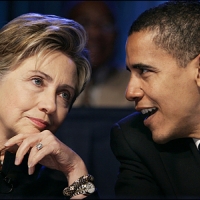 From the outset, it’s important to recognize that particularly with regard to the ongoing conflict in Iraq, that aforementioned ‘taint’ will be hard to eliminate for any incumbent President. America’s commitment in Iraq may not last for a John McCain ‘100 years’, but even for a leader dedicated to getting out of the mess without leaving the Iraqi people stranded, it is a difficult enough project that it will easily remain a significant obstacle to second-term re-election for a new President.
From the outset, it’s important to recognize that particularly with regard to the ongoing conflict in Iraq, that aforementioned ‘taint’ will be hard to eliminate for any incumbent President. America’s commitment in Iraq may not last for a John McCain ‘100 years’, but even for a leader dedicated to getting out of the mess without leaving the Iraqi people stranded, it is a difficult enough project that it will easily remain a significant obstacle to second-term re-election for a new President.
His worrisome projections about the long-term U.S commitment in Iraq cast aside, it would still be foolhardy to expect that John McCain could be considered an ideal candidate to repair America’s image. Ten odd years ago, McCain was the politician high on integrity and deemed ‘more liberal than conservative’, and indeed he still does veer toward the left in some policy positions, perhaps most notably with regard to immigration. He also stands distinct from many of his Republican peers in promoting positive solutions to the problem of climate change. That said, while it is partly just political pragmatism, in many people’s eyes the Senator from Arizona has lost a good deal of credibility in what he may have ethically sacrificed by trying to broaden his appeal to the more conservative and far right elements of the Republican party. Irrespective, in matters of foreign policy, it is hard to envision that he would represent a strong departure from the Bush administration, and McCain’s positions on Israel and Iran, in particular, support this. The former POW McCain’s half-hearted condemnations of torture (followed by his voting against a ban on torture) were especially galling.
The point here is not that the United States should be expected to adopt a position of limp, bowing appeasement and concession to the rest of the world because of past sins, nor has America lost the right to protect her own interests. And yet, surely if the Bush administration’s handling of the role of the United Nations and of Iraq has shown us anything, it is that the importance of diplomacy in foreign affairs should not be forgotten. At the very least diplomacy is the kind of forward-thinking, advanced ideal that can keep governments from caveman antics of clubbing at each other without reason.
Hillary Clinton is of course not to be mistaken with John McCain, particularly in terms of core political ideology. The name ‘Clinton’ alone is enough to make most conservative Americans foam at the mouth about the perils of extreme liberalism. And yet, Clinton and McCain do both share somewhat heavy-handed approaches to their foreign policies. They both advocate a tough ongoing stance in U.S-Cuban relations, they are both aggressively pro-Israel to the point that some might consider their positions too narrowly restricted, and, perhaps most famously, they both voted for the war in Iraq.
Clinton was certainly not alone in casting a vote to war, although her initial vote is one that goes to the heart of determining credibility and sound decision-making for leadership when pitted against Barack Obama. While Hillary likes to label Obama as inexperienced and naïve, he still felt strongly enough to vote against the conflict, exhibiting a degree of foresight that some might argue she lacked. More recently, while Hillary’s pedigree and competency are undeniable, one has to wonder if the same ‘Clinton’ name that raises the ire of Republicans might not hinder the manner in which she might be received abroad. During her campaign, both Hillary and husband Bill have made enough missteps in terms of conversations on race (specifically, about Obama himself and his voting base) and foreign policy (Hillary claimed she would ‘obliterate Iran’ if it attacked Israel) that she may have already alienated many in the international community, to say the least of on the domestic front.
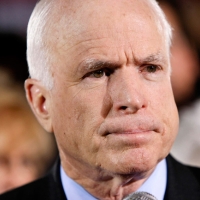 There’s little doubt that, when compared to McCain and Clinton, Obama is far less experienced. In light of America’s recent history, however, it felt a little harsh that Obama was deemed ignorant of international realities by his opponents merely because he expressed that he would (and as advocated by former President Jimmy Carter) be willing to sit down with leaders of Hamas and such nations as Iran, North Korea and Cuba, so that positive dialogue might at least begin. Somewhere in the post 9-11 period the term ‘diplomacy’ was hijacked by certain elements to represent only the qualities of weakness and concession, even as there’s little doubt that successful diplomacy can spare countless lives and dollars.
There’s little doubt that, when compared to McCain and Clinton, Obama is far less experienced. In light of America’s recent history, however, it felt a little harsh that Obama was deemed ignorant of international realities by his opponents merely because he expressed that he would (and as advocated by former President Jimmy Carter) be willing to sit down with leaders of Hamas and such nations as Iran, North Korea and Cuba, so that positive dialogue might at least begin. Somewhere in the post 9-11 period the term ‘diplomacy’ was hijacked by certain elements to represent only the qualities of weakness and concession, even as there’s little doubt that successful diplomacy can spare countless lives and dollars.
It isn’t surprising to hear McCain occasionally employ bullish, cowboy rhetoric, but it was surprising — and disappointing — to hear Clinton use terms like ‘obliterate’ and utilize Bush-style campaign scare tactics to score cheap votes (as in her controversial ‘3am phone call’ ad). These tactics might stay with a candidate only as long as it takes to complete a dirty election campaign, but the rest of the world may not have such a short-term memory or be so eager to play along when, on the heels of these precedents, President Hillary appears on their doorstep calling for cooperation and support.
Ultimately the biggest leap of faith for American voters and, should he be elected, for the international community, will be whether or not Barack Obama can overcome his undeniable lack of experience with intelligence, resourcefulness and tact. One of the most common criticisms leveraged against Obama is that he often speaks in intangibles that lack substance, and indeed he regularly touts the importance of ‘hope’ in his stump speeches. There’s little doubt that Obama lagged a while in adding more meat to his expressions of policy and position during the life of this Democratic campaign, and it is unlikely he would ever be able to surpass someone like Clinton in terms of her thorough breadth of knowledge on political issues. At the heart of Obama’s foreign policy is his refusal to rule out the role of talks in facilitating progress, especially in managing the Iraq conflict. 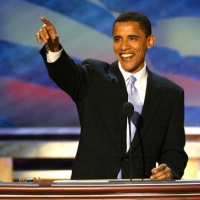 While playing on perception is a risky business, however, Obama’s charisma and earnest nature play far more genuinely when compared against McCain’s forced stoicism and Clinton’s crocodile tears. Substance will always matter the most over a well-delivered speech full of hot air, but the world also craves expressions of honesty, hope and unity after the backroom maneuverings, sleight of hand and extreme disappointment of the last eight years.
While playing on perception is a risky business, however, Obama’s charisma and earnest nature play far more genuinely when compared against McCain’s forced stoicism and Clinton’s crocodile tears. Substance will always matter the most over a well-delivered speech full of hot air, but the world also craves expressions of honesty, hope and unity after the backroom maneuverings, sleight of hand and extreme disappointment of the last eight years.
When the capacity to inspire is combined with the less interventionist, less heavy-handed, and more-open-to diplomacy expressions of Obama’s foreign policy, one does get the sense that he may be worthy of a leap of faith when compared to the competition. A leap of faith is indeed much to ask of voters at this time, especially when the stakes are so very, very high, and when it would be likely that inexperience may lead, inevitably, to some missteps. But if respect for America is to be restored in the eyes of a cynical, angry world’s eyes, faith in these intangible ideals of honesty, hope and unity may well be the best and only starting point to true recovery.
Ezy Reading is out every month. Letters can be sent to feedback@thecud.com.au with the title ‘Ezy Reading’ in the header…
